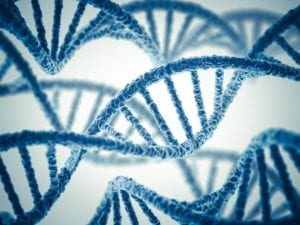U.S. Customs and Border Protection (CBP) will soon reach full operational capacity with its DNA collection program. The data will be added to the FBI’s Combined DNA Index System (CODIS), and will allow the agency to comply with the DNA Fingerprint Act of 2005, which mandates that CBP must collect the DNA of anyone who gets arrested, charged, or convicted of a crime. The agency is also required to gather biometric data from any non-US citizens in its custody.

The CBP had previously been exempt from the Act’s DNA collection requirement, until the Department of Justice removed that exemption back in March. The exemption officially ended on April 8, though CBP was granted a three-year grace period to give the agency time to update its technology and comply with the law. However, the agency believes it will beat that deadline, and expects to achieve full compliance by December 31, 2020.
The feat will be accomplished through the steady expansion of a pilot program that began in January. The pilot was launched by CBP’s Office of Field Operations (OFO) and the US Border Patrol (USBP), and has increased in scope every month as the agency ramped up to full capacity. CBP’s original exemption had been granted due to the agency’s limited resources.
Once it achieves compliance, the agency will be collecting the DNA of detained foreign nationals (including those being processed for deportation), and of US citizens and permanent residents who are between the ages of 14 and 79 and have been charged with a federal crime. It will not be taking the DNA of legal immigrants, or those being considered for legal status. That remains true for anyone being held at a Port of Entry while their case is being processed. DNA will also not be collected in cases of maritime interdiction, or if the FBI already has that person’s DNA on file.
While CBP will keep a record of the collection process, the actual DNA will be stored and used by the FBI. The Department of Homeland Security (which includes CBP) maintains its own biometric database, and is currently pushing for a controversial policy change that would give the agency the ability to collect much more biometric data from immigrants and US citizens. DNA collection is part of the policy, which has been opposed by US legislators and privacy advocates.
–
December 7, 2020 – by Eric Weiss







Follow Us